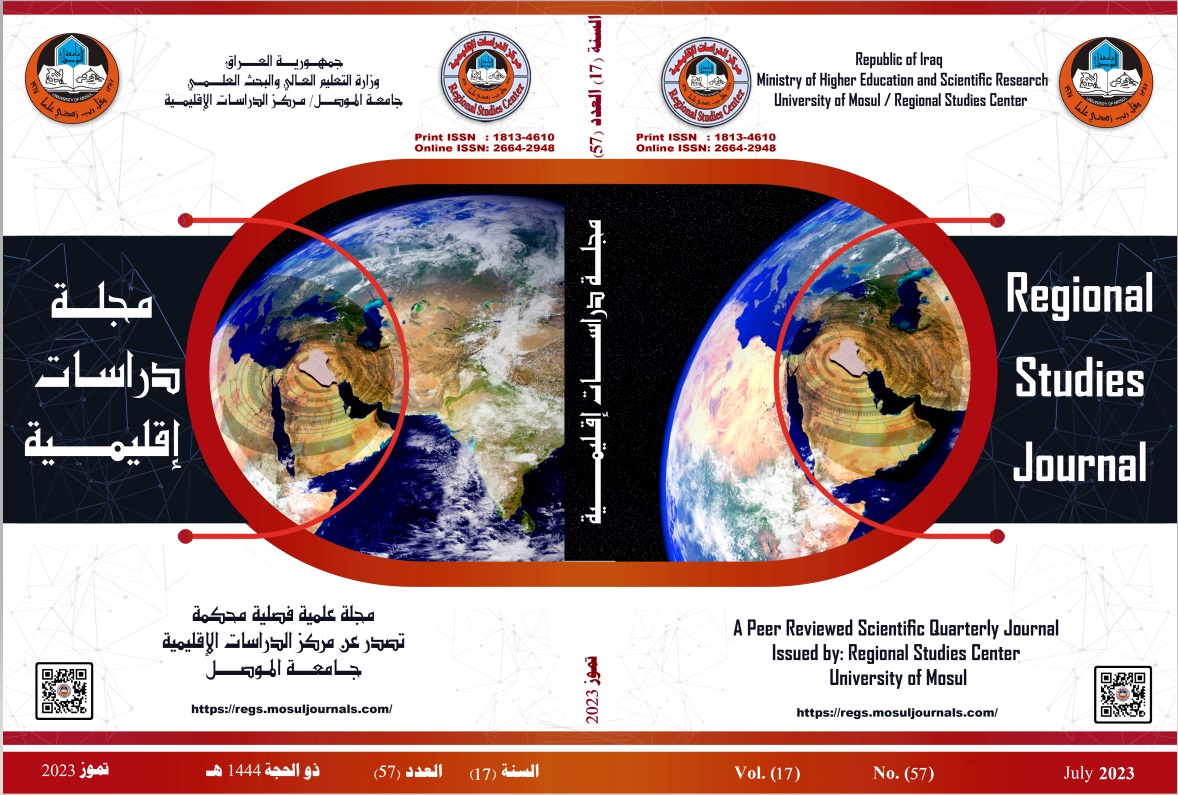Abstract
Abstract
The history of the Middle East, and Iraq at its heart, is nothing but the history of the conflict between East and West. Iraq in particular was and will remain an arena of conflict. It was an arena of conflict between the Byzantines and the Sassanids and between the Ottomans and the Safavids. The people of Iraq remained fuel for those conflicts, and unfortunately they had no stake in them. Those conflicts drained Iraq's economic, social and intellectual potential, and this was negatively reflected on the people. In this study, we are not going to delve into the labyrinths of those days of conflict, their circumstances and repercussions, but we must establish a fixed fact, which is that those conflicts and the resulting interventions increased when Iraq was weak and decreased when Iraq was strong. We do not deny that Turkey has influence in Iraq, nor does Iran or the Arabs, but the sovereignty and unity of Iraq must be taken into consideration. Iran has agendas, interests, human, cultural and security extensions in Iraq, and so does Turkey and the Arabs, and the Iraqis must be aware of these facts and appear united, strong and capable of preserving their country.
The history of the Middle East, and Iraq at its heart, is nothing but the history of the conflict between East and West. Iraq in particular was and will remain an arena of conflict. It was an arena of conflict between the Byzantines and the Sassanids and between the Ottomans and the Safavids. The people of Iraq remained fuel for those conflicts, and unfortunately they had no stake in them. Those conflicts drained Iraq's economic, social and intellectual potential, and this was negatively reflected on the people. In this study, we are not going to delve into the labyrinths of those days of conflict, their circumstances and repercussions, but we must establish a fixed fact, which is that those conflicts and the resulting interventions increased when Iraq was weak and decreased when Iraq was strong. We do not deny that Turkey has influence in Iraq, nor does Iran or the Arabs, but the sovereignty and unity of Iraq must be taken into consideration. Iran has agendas, interests, human, cultural and security extensions in Iraq, and so does Turkey and the Arabs, and the Iraqis must be aware of these facts and appear united, strong and capable of preserving their country.
Keywords
Arab-Kurdish relations
impact of Regional factor
Regional factor
Abstract
إن تاریخ الشرق الأوسط والعراق في قلبه ما هو إلا تاریخ الصراع بین الشرق والغرب. إن العـراق بشكل خاص كـان وسيظل ساحة للصراع.. كان ساحة للصراع بین البیزنطیین والساسانیین وبین العثمانیین والصفویین وظل الناس في العراق وقودا لتلك الصراعات، وللأسف لم تكن لهم فیها ناقة ولأ جمل. لقد استنزفت تلك الصراعات إمكانات العراق الاقتصادیة والاجتماعیة والفكریة وانعكس ذلك سلبا على الناس. ولسنا في هذه الدراسة - بصدد الدخول في متاهات أیام الصراع تلك وملابساتها وانعكاساتها ولكن لابد من تقریر حقیقة ثابتة وهي أن تلك الصراعات وما كان ینجم عنها من تدخلات كانت تزداد عندما یكون العراق ضعیفا وتقل عندما یقوى العراق. نحن لا ننكر في أن یكون لتركیا نفوذ في العـراق ولا لإیران ولا للعرب ولكن لابد أن تؤخذ سیادة العراق ووحدة العراق بنظر الاعتبار.لإیران أجندات ومصالح وامتدادات بشریـة وثقافیة وأمنیـة في العراق ولتركیا كذلك وللعرب وعلى العراقیین أن یعوا هذه الحقائق على أن یظهروا موحدین وأقویاء وقادرین على المحافظة على بلدهم.
Keywords
العامل الإقليمي، العلاقات العربية الكردية، اثر العامل الإقليمي
